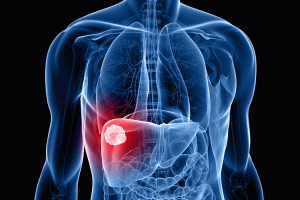
The final results of the palliative cohort of the SORAMIC study in patients with unresectable, locally advanced primary liver cancer have confirmed no clinical advantage to adding selective internal radiation therapy (SIRT) to standard sorafenib treatment compared with using sorafenib alone.
However, although the overall survival rates in the total patient population did not differ significantly between treatment groups, subgroup analyses suggested possible survival benefits with adding SIRT to sorafenib in some patient groups.
'SORAMIC is the first large, randomised controlled trial to compare the efficacy and safety of combining liver-directed SIRT and sorafenib with using sorafenib alone', explained study director, Prof. Dr Jens Ricke from the Ludwig-Maximilians-University in Munich, Germany, who presented the results at The International Liver Congress™ 2018 in Paris, France.
'Although we were disappointed to find no overall survival benefit of adding SIRT to sorafenib across the entire study population, we did observe a survival benefit in younger patients, those with a non-alcoholic aetiology of the cirrhosis, and those with no cirrhosis at all'.
Hepatocellular carcinoma (HCC) is the most common form of primary liver cancer and the second most common cause of cancer-related death.
HCC can be treated surgically by resection or transplantation, however, many patients are not candidates for surgical interventions and, for these patients, the prognosis remains poor.
Sorafenib is the standard, first-line systemic therapy for individuals with advanced HCC, with the SHARP study demonstrating an increased median overall survival from 7.9 months to 10.7 months with sorafenib treatment compared with placebo in this population.
The SORAMIC (SORAfenib in combination with local MICro-therapy guided by gadolinium-EOB-DTPA-enhanced MRI; NCT01126645) study was initiated in February 2010 and comprises three separate diagnostic, local ablation, and palliative sub-studies.
The palliative sub-study presented today randomised 424 patients with inoperable HCC who were not candidates for transarterial chemoembolization (TACE) to receive treatment with either SIRT with yttrium-90 resin microspheres (SIR-Spheres®) plus sorafenib (target dose 400 mg bid) or sorafenib alone.
The primary endpoint of the study was overall survival (OS) in the intention-to-treat population.
As Prof. Dr Ricke reported, the median OS was 12.1 months (95% CI: 10.6, 14.6) in the SIRT sorafenib arm (n=216) and 11.5 months (95% CI: 9.8, 13.9) in the sorafenib arm (n=208) (HR: 1.01; 95% CI: 0.82, 1.25; p=0.93).
In the per-protocol group, the median OS was 14.1 months (95% CI: 10.9, 16.4) in the SIRT sorafenib arm (n=114) and 11.1 months (95% CI: 9.7, 13.9) in the sorafenib arm (n=174) (HR: 0.86; 95% CI: 0.67, 1.11; p=0.25).
A subgroup analysis of the per-protocol population in this study revealed a survival benefit of SIRT sorafenib for patients 65 years of age (HR: 0.652), those with a non-alcoholic aetiology of the cirrhosis (HR: 0.632), and those with no cirrhosis (HR: 0.465).
Adverse events grade 3 or higher were reported in 115/159 (72.3%) patients in the SIRT sorafenib arm and in 135/197 (68.5%) patients in the sorafenib arm.
'There remains a significant unmet need for new treatment approaches in patients with unresectable HCC, and SIRT had shown promising results in previous, non-randomised studies', said Prof. Dr Ricke.
'We believe our results have generated some very interesting new hypotheses in terms of the types of HCC patients that might benefit from combination therapy of SIRT and sorafenib, and we hope to explore these further in the future'.
'The SORAMIC trial is the first reported randomised controlled trial evaluating the survival benefit of adding SIRT to sorafenib in unresectable, locally advanced HCC not suitable for TACE', said Prof. Alejandro Forner from the Hospital Clinic Barcelona, Spain, and EASL Governing Board Member.
'Regrettably, the study failed to meet the primary endpoint and the addition of SIRT to sorafenib did not show an overall survival that was superior to sorafenib alone. Further studies are needed to identify which specific population might benefit from this treatment approach'.